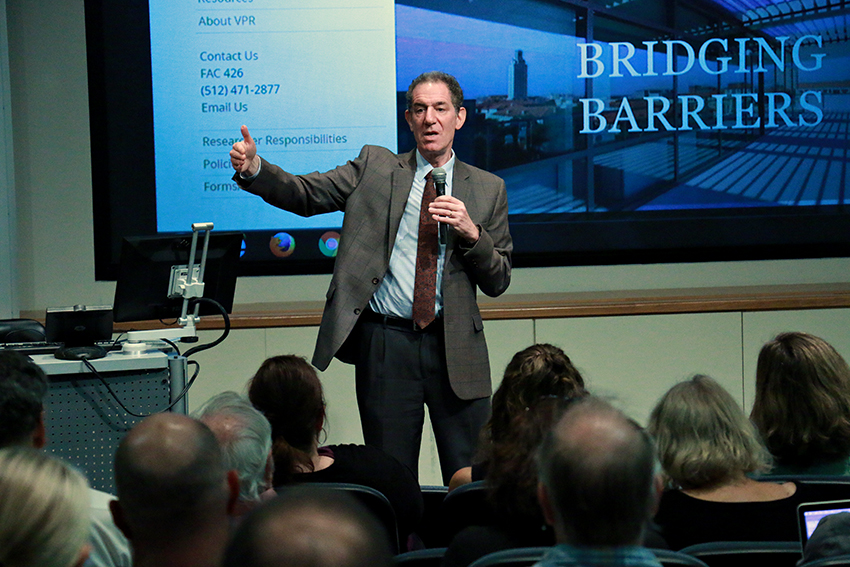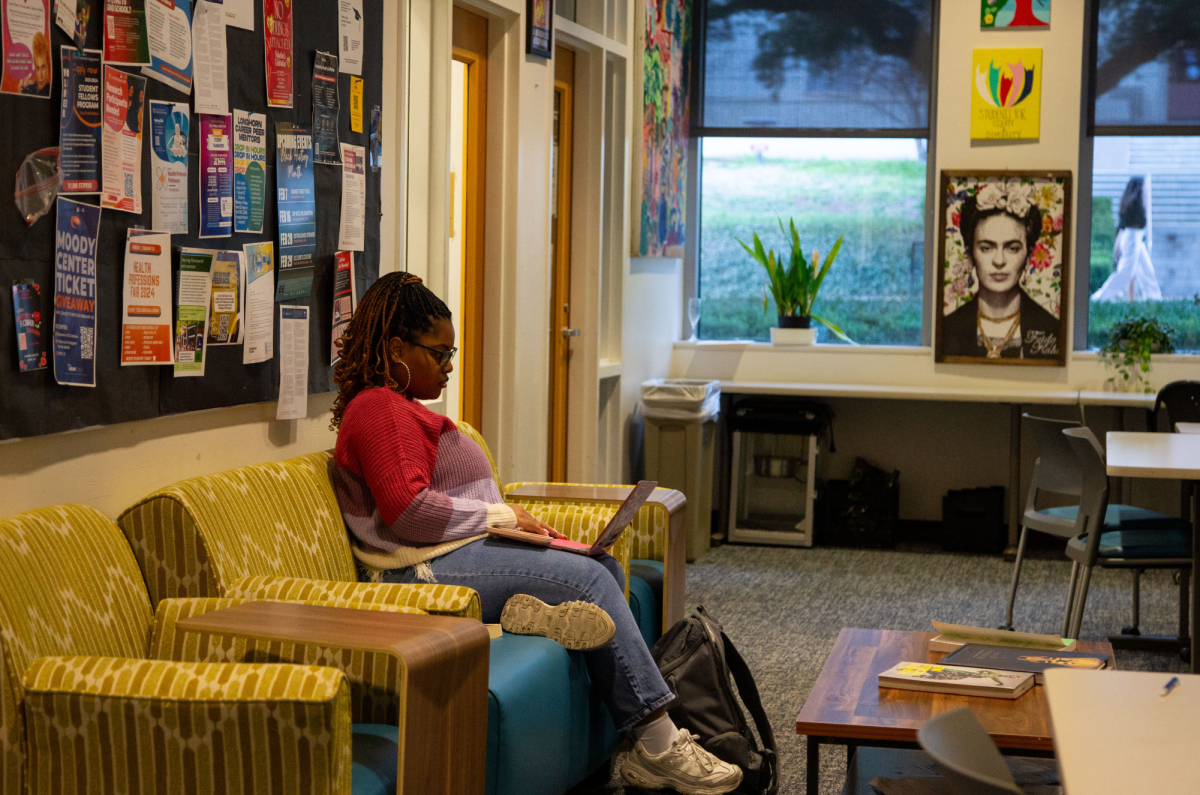Allowing researchers to answer the toughest questions of our generation is the main goal of University President Gregory Fenves’s “Bridging Barriers” initiative, which had its first open forum Wednesday afternoon.
The initiative encourages cross-disciplinary collaboration between University researchers, taking a broad submission of ideas from researchers and grouping them into a theme. From there, interdisciplinary groups will create a program to solve a single broad issue, according to Dan Jaffe, vice president for research.
“We’re not trying to solve as many problems as we can,” said Jaffe, who is in charge of the initiative. “We’re trying to solve one very big problem very well.”
The initiative would not interrupt normal professor research, just add a new outlet for all University researchers to work on solving problems. Jaffe said he wants the ideas professors submit to be important and relevant issues that are timely to the global community. The first research project will launch in May, then launch subsequent projects annually for the next three or four years, Jaffe said.
“The idea is to ultimately have four or five of these projects going at once,” Jaffe said. “Over the long term, we first need to see what the outcomes are. How successful this is as a program, how it influences the mission of the University, and then we’ll be able to decide whether this is something we’ll be able to watch more.”
Jennifer Gardner, assistant vice president for research, said the program will make advancing University research easier as research done by professors becomes more complex.
“Research questions and problems that face humans continue to get more complex and more and more faceted,” Gardner said. “You need people from multiple disciplines to work together and collaborate to solve each problem.”
Jaffe said he believes having this initiative will promote a better learning environment for students.
Mechanical engineering freshman Jacob Hethcock, who is participating in research about granite sewer capacitors, said the opportunities the program provides are exciting for him as a first-year student.
“The opportunity to work with other disciplines is uncommon in research because normally you work within your own discipline,” Hethcock said. “For this program to allow that is awesome.”
Anthropology professor Anthony Di Fiore said he thinks the opportunity for professors to collaborate will benefit him in his research.
“My work is very interdisciplinary,” Di Fiore said. “There’s a lot of different foci to my research and having others on campus can give the insight into the work I’m doing, or perhaps piggyback on the kind of work I’m doing, or if I could piggyback on theirs that would be great.”
When describing the initiative to professors attending the forum, Jaffe emphasized the need for relevant and important issues to be addressed by University researchers coming together.
“We’re looking for ideas, not for people,” Jaffe said. “We can only be successful with the ground up input and ideas our faculty are providing.”





















